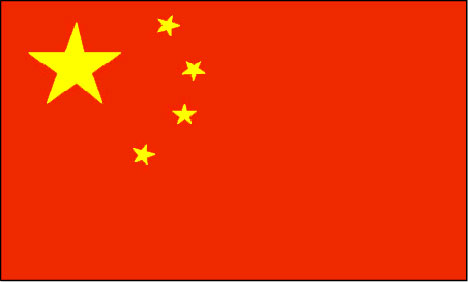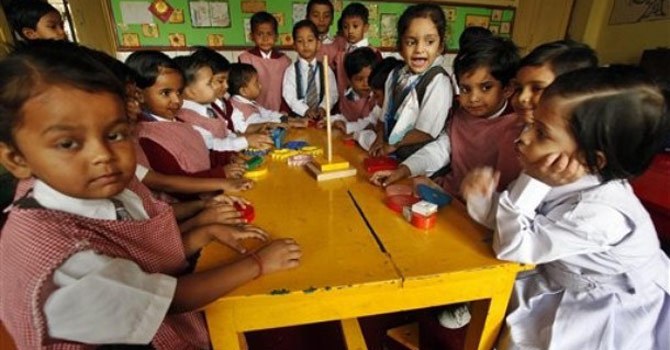- Web
- Humsa
- Videos
- Forum
- Q2A



The US military has entered a period of historic change after more than a decade of war, following the terrorist attacks of September 11, 2001. America has ended the war in Iraq; it is implementing an effective transition and drawdown in Afghanistan; and it has seriously weakened Al Qaeda’s leadership in the fight against terrorism.
As a result of these efforts and the reality of budget constraints, the US has developed a new defence strategy for the 21st century - one that emphasises agility, technology and force projection. The US has begun to focus on the challenges and opportunities of the future and it is clear that many of them lie in Asia.
After all, the global centre of gravity is steadily shifting towards the Asia-Pacific, tying America’s future prosperity and security ever more closely to this fast-growing region. At the same time, increasing military spending, challenges to maritime security, non-traditional threats - ranging from piracy to terrorism - and the destruction wrought by natural disasters are making the region’s security environment more complex. For these reasons, the US Department of Defence is implementing a “rebalance” of America’s strategic focus and posture to the Asia-Pacific.
The vast majority of America’s rebalance comes in non-military areas like trade and development. This is part of a broad effort directed by President Barack Obama to deepen America’s diplomatic, development, economic, security and cultural engagement across the region. For the Department of Defence, the rebalance is about helping to ensure that the US and all countries in the region continue to benefit from a secure and prosperous Asia-Pacific - as we have for nearly 70 years.
This effort rests on four pillars. The first is America’s long-standing commitment to a set of principles that helped advance peace and security in the region in the 20th century. As a Pacific power, the US has an abiding national interest in a just international order that emphasises states’ rights and responsibilities and their fidelity to the rule of law; open access for all to the global commons of sea, air, space and cyberspace; unimpeded economic development and commerce and resolving conflict without the use of force. These principles can and should underpin strong economic, diplomatic, and military relationships throughout the region today.
The second pillar is a special priority of mine: Modernising and strengthening America’s alliances and partnerships in the region, and developing new ones. That mission has led me to travel to Asia four times since becoming Secretary of Defence in July 2011. It has led the US to devote more resources and effort to building its partners’ capabilities and improving interoperability between the US military and forces in the region. America is also working to identify opportunities to deepen our cooperation in information security, intelligence, surveillance and reconnaissance and other high-tech frontiers - from cyberspace to outer space.
For example, the US is developing a new bilateral plan for the US-Japanese alliance’s future roles, missions and capabilities and reached an agreement to position an additional missile-defence radar to protect against the North Korean threat. On my recent visit to Australia, we signed an agreement to relocate a space surveillance radar to western Australia. And, in South Korea, our Strategic Alliance 2015 agreement charts a course for the future across a range of fronts, including cooperation in space and cyberspace, intelligence and information sharing and command arrangements.
In Southeast Asia, we are expanding our engagement with the Association of Southeast Asia Nations (Asean), increasing bilateral engagement with traditional allies and partners like Thailand, the Philippines, Singapore and developing our cooperative partnerships with Vietnam, Malaysia and Indonesia.
One of the most important ways to enhance alliances and partnerships is through joint training and exercises. During 2012, the US increased both the size and the number of bilateral and multilateral exercises across the Asia-Pacific region. For example, the Rim of the Pacific (RIMPAC) exercise was the largest ever, including more than 42 ships and 25,000 personnel from 22 countries, while the US and China staged their first-ever maritime counter-piracy exercise near the Horn of Africa. In 2013, America will engage for the first time in multilateral military exercises led by Asean, while China has been invited to send ships to RIMPAC 2014.
In support of this increased engagement - aimed not at establishing new permanent bases, but rather at building stronger allies and partners through a greater rotational presence - the third pillar of America’s rebalancing is to enhance its presence across the Pacific and Indian Oceans.
In Northeast Asia, where the US military has traditionally maintained a strong presence, America is modernising its posture. This year, the US deployed F-22s and MV-22 Ospreys to Japan and reached an important agreement to relocate its forces on Okinawa. America continues to develop Guam as a strategic hub and plans to establish fully capable Marine Air-Ground Task Forces in Japan, Guam and Hawaii. Meanwhile, the US is retaining and upgrading US Army capabilities in Korea.
The US military is also rebalancing within the Asia-Pacific region to place more emphasis on new partnerships in Southeast Asia and the Indian Ocean. Last spring, 200 US Marines arrived in Darwin, Australia, for the first six-month rotation to serve and train alongside Australian troops and operate with regional partners. America also increased the number and frequency of US Air Force aircraft rotating through Northern Australia. Finally, America agreed with Singapore to deploy up to four Littoral Combat Ships there on a rotational basis to join it and other countries in the region for exercises, training and responses to challenges.
.jpg) BAQUBA: Three near-simultaneous bombings -- two car bombs and a suicide attack -- killed at least a dozen people in a fruit and vegetable wholesale market north of Baghdad on Monday, officials said.
The blasts went off in the town of Judaida al-Shat, which lies just west of the restive city of Baquba and remains one of Iraq's most dangerous.
The bom..... Read more
BAQUBA: Three near-simultaneous bombings -- two car bombs and a suicide attack -- killed at least a dozen people in a fruit and vegetable wholesale market north of Baghdad on Monday, officials said.
The blasts went off in the town of Judaida al-Shat, which lies just west of the restive city of Baquba and remains one of Iraq's most dangerous.
The bom..... Read more
 China on Wednesday demanded North Korea comply with UN resolutions against using ballistic missiles, the official news agency Xinhua said Wednesday after Pyongyang launched a long-range rocket.
Pyongyang should... abide by relevant UN Security Council resolutions... which demands the DPRK not to conduct 'any launch using ballistic missi..... Read more
China on Wednesday demanded North Korea comply with UN resolutions against using ballistic missiles, the official news agency Xinhua said Wednesday after Pyongyang launched a long-range rocket.
Pyongyang should... abide by relevant UN Security Council resolutions... which demands the DPRK not to conduct 'any launch using ballistic missi..... Read more
 German police have arrested a 28-year-old Pakistani man on suspicion of spying on high-tech military data, the office of the federal public prosecutor said in a statement on Thursday.
A German magazine has said the case involves a firm that did research on reconnaissance drones made by Israel and used by the German army in Afghanistan.“The case is a..... Read more
German police have arrested a 28-year-old Pakistani man on suspicion of spying on high-tech military data, the office of the federal public prosecutor said in a statement on Thursday.
A German magazine has said the case involves a firm that did research on reconnaissance drones made by Israel and used by the German army in Afghanistan.“The case is a..... Read more












 Clean Chit (Faisal Raza Abidi ...
Clean Chit (Faisal Raza Abidi ...  Akhir Kiyon - 16th December 2...
Akhir Kiyon - 16th December 2...  To The Point - 16th December ...
To The Point - 16th December ...  Capital Talk â
Capital Talk â  Kal Tak - 16th December 2013
Kal Tak - 16th December 2013  Bay Laag - 16th December 2013
Bay Laag - 16th December 2013  Kharra Sach - 16th December 2...
Kharra Sach - 16th December 2...  Awaam - 15th December 2013
Awaam - 15th December 2013 





 Gold Miner
Gold Miner  Superbike GP
Superbike GP  Whipsaw Fighter
Whipsaw Fighter  PacMan
PacMan 


